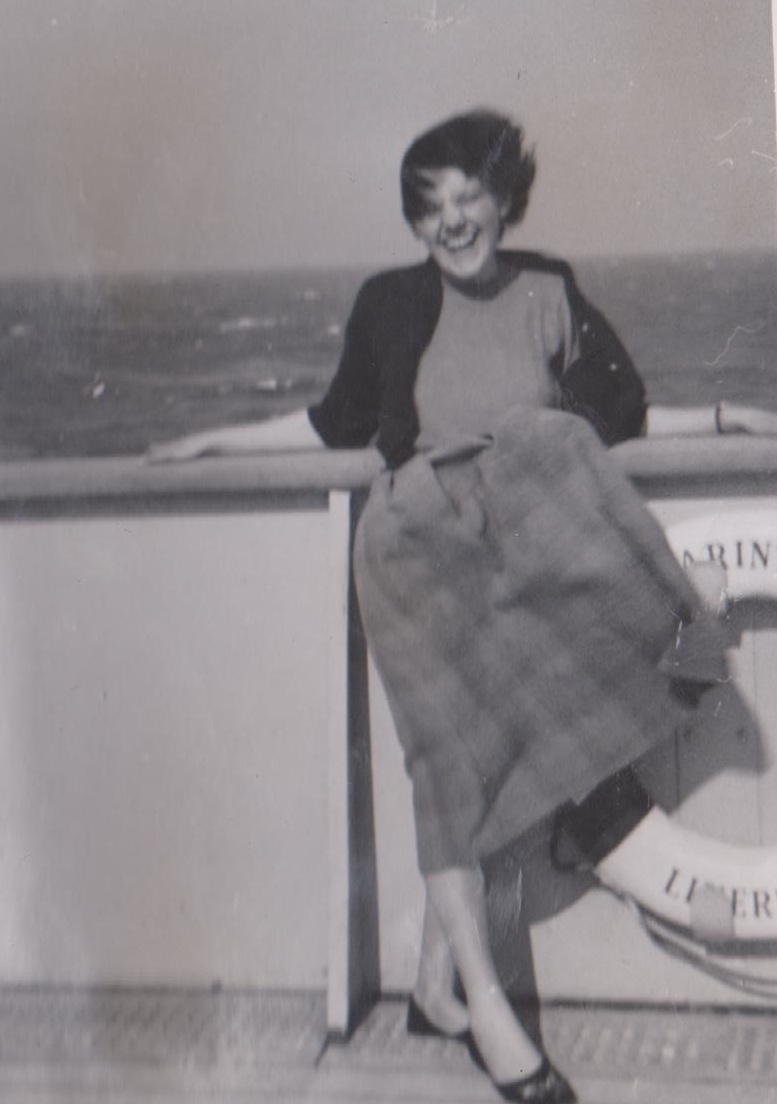This week has been characterised by remembering... making a photographic Memory Book for my mother (the photo above is her in her 20s travelling to or from the USA), and researching and writing a tribute for a funeral. Each of these has been a strange blend of enormous privilege and huge responsibility. Each has also prompted a lot of my own memories, about my own life thus far, about the joys and sorrows, successes and failures, the things that have shaped - or I have allowed to shape - my personality. So it's also been a bit of an introspective week, one way and another.
One of my memories was of the poem cited below. It is a memory prompt in its own right - I first came across it in a Lent Study back in the 1980s, and I am pretty sure my recollection of the church hall where we met is correct. It struck me then, and it continues to stirke me every time I recall or read it...
One day, should I live long enough, I may well be a 'crabbit old woman', which is partly why I want to share it. If this might be my 'destiny' then it also impacts on my now, the way I live, write, speak or whatever it is: I make my memories, and form those of me in others.
What do you see, nurse, what do you see?
What are you thinking, when you look at me?
A crabbit old woman, not very wise,
Uncertain of habit, with far-away eyes,
Who dribbles her food and makes no reply
When you say in a loud voice,
I do wish you'd try.
Who seems not to notice the things that you do
And forever is loosing a stocking or shoe.
Who, unresisting or not; lets you do as you will
With bathing and feeding the long day is fill.
Is that what you're thinking,
Is that what you see?
Then open your eyes,
nurse, you're looking at me.
I'll tell you who I am as I sit here so still!
As I rise at your bidding, as I eat at your will.
I'm a small child of 10 with a father and mother,
Brothers and sisters, who loved one another-
A young girl of 16 with wings on her feet,
Dreaming that soon now a lover she'll meet,
A bride soon at 20- my heart gives a leap,
Remembering the vows that I promised to keep.
At 25 now I have young of my own
Who need me to build a secure happy home;
A woman of 30, my young now grow fast,
Bound to each other with ties that should last;
At 40, my young sons have grown and are gone,
But my man's beside me to see I don't mourn;
At 50 once more babies play around my knee,
Again we know children, my loved one and me.
Dark days are upon me, my husband is dead,
I look at the future, I shudder with dread,
For my young are all rearing young of their own.
And I think of the years and the love that I've known;
I'm an old woman now and nature is cruel-
Tis her jest to make old age look like a fool.
The body is crumbled, grace and vigor depart,
There is now a stone where I once had a heart,
But inside this old carcass, a young girl still dwells,
And now and again my battered heart swells,
I remember the joy, I remember the pain,
And I'm loving and living life over again.
I think of the years all too few- gone too fast.
And accept the stark fact that nothing can last-
So open your eyes, nurse, open and see,
Not a crabbit old woman, look closer-
See Me.
